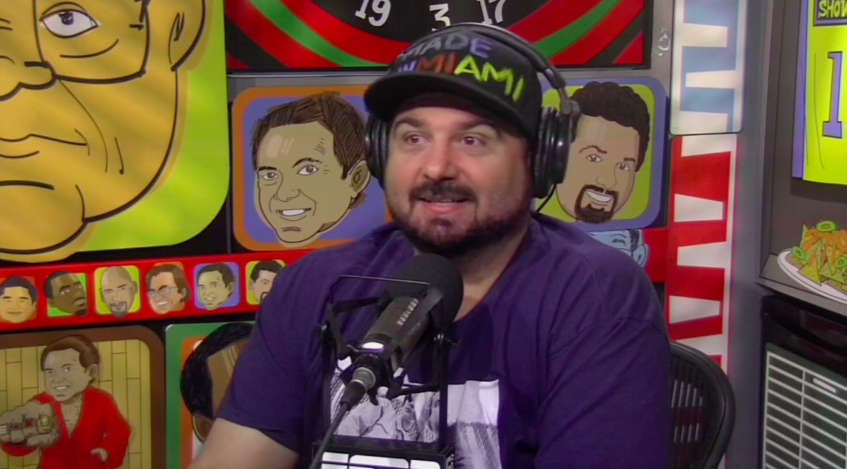The big meeting between Dan Le Batard and ESPN president Jimmy Pitaro Thursday, a week after Le Batard’s discussion of politics and ESPN’s politics policy on his radio show, reportedly ended with the sides finding a way forward and Le Batard set to return to TV Friday and radio Monday. (He didn’t actually return to TV Friday, but that was reportedly about his plane back to Miami experiencing mechanical issues.) Now, as part of Ben Strauss’ long Washington Post profile of ESPN president Jimmy Pitaro that covers everything from Pitaro’s attempts to get Yankees’ players to toss him a ball (Strauss spoke with Pitaro at a Rays-Yankees game in New York “weeks before Le Batard’s comments,” so that’s presumably the series from June 17-19 rather than last week’s) to Pitaro’s overall leadership style to his thoughts on sports as a “uniter,” we have a report on what Le Batard and Pitaro have agreed to do going forward:
For now, Pitaro has quelled the Le Batard controversy. He met with the host in New York on Thursday and Le Batard will continue at ESPN. If Le Batard feels the need to address a political issue in the future, he will check with higher-ups, according to a person with knowledge of the conversation. And unlike in 2017, there was no accompanying tweet from Trump, and the drama felt contained.
As that piece notes, though, that’s probably not the last time ESPN will have to deal with something involving politics. Strauss also includes this on Stephen A. Smith:
Stephen A. Smith emailed Pitaro, expressing support for the politics policy but seeking guidance for how to handle moments that do transcend politics, such as the chant at the rally. In his email, Smith predicted politics would become a bigger story during an election year in which athletes are poised to be vocal, and wondered what those athletes might think of ESPN.
There definitely will be plenty of athletes being vocal, as there always have been. And how ESPN will handle coverage of that remains to be seen; as with many disciplinary procedures at ESPN, implementations of the politics policy haven’t exactly been consistent (consider how no one got punished for speaking up against an explicitly political proposal to defund the Special Olympics, which happens to be a cause the network appreciates).
But when it comes to Le Batard, at least, there’s reportedly going to be a “check with higher-ups” before discussion of political issues. That raises a lot of questions about what’s “political,” though, and how this will apply to sports issues that have political dimensions, and how reticent these unnamed “higher-ups” will be to approve political discussion. We’ll see how this new approach goes, and if it proves to be tenable for both sides.






